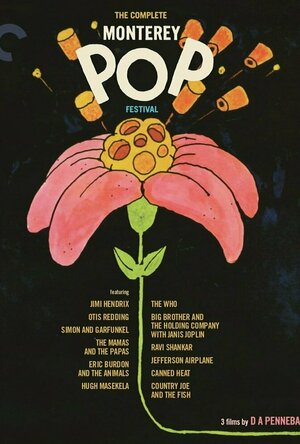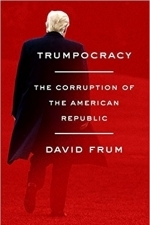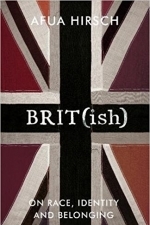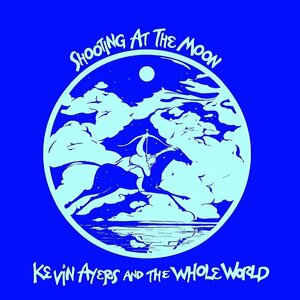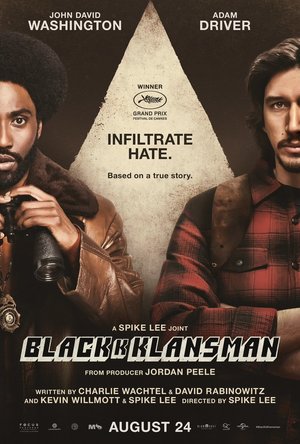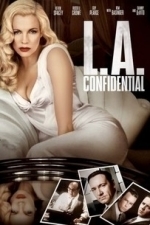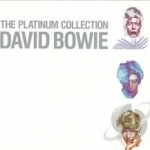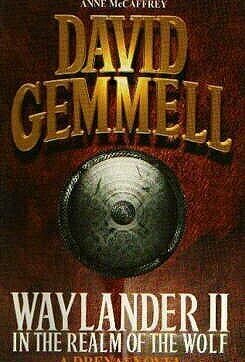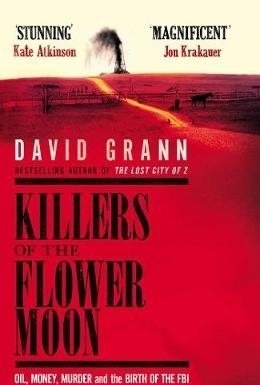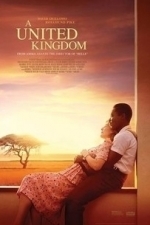Search
Search results
John Taylor recommended Monterey Pop (1968) in Movies (curated)
Suswatibasu (1703 KP) rated Trumpocracy: The Corruption of the American Republic in Books
Mar 15, 2018 (Updated Mar 15, 2018)
A thoughtful, well-argued factual account of the US presidency
I actually enjoyed this rather Republican perspective of the Trump administration, especially as it seems to be less sensationalist than Michael Wolff's controversial book, @Fire and Fury: Inside the Trump White House.
Former George W. Bush speechwriter, David Frum, writes about the biggest threat to democracy in a factual, scholarly way without resorting to tabloid remarks. Frum carefully builds his argument using well-recognised sources from across the political, historical and media spectrum.
While he is clearly not a fan of the President, his critique mostly focusses on how Trump distorts and uses his power unconstitutionally, attempting to subvert institutions for his own benefit. But he also criticises those around him who have helped him stay in power such as Paul Ryan and Michael Flynn. What is worrying is the increase of military personnel and financiers who surround him, similar to those of many authoritarian nations, who exacerbate irrational decision-making.
He speaks about his voter base which also includes swathes of young white men, who are disillusioned and care less about religion and sexism - hence why Hillary Clinton was unable to change their minds. It is a well-argued, eye-opening book that does not resort to character bashing.
Former George W. Bush speechwriter, David Frum, writes about the biggest threat to democracy in a factual, scholarly way without resorting to tabloid remarks. Frum carefully builds his argument using well-recognised sources from across the political, historical and media spectrum.
While he is clearly not a fan of the President, his critique mostly focusses on how Trump distorts and uses his power unconstitutionally, attempting to subvert institutions for his own benefit. But he also criticises those around him who have helped him stay in power such as Paul Ryan and Michael Flynn. What is worrying is the increase of military personnel and financiers who surround him, similar to those of many authoritarian nations, who exacerbate irrational decision-making.
He speaks about his voter base which also includes swathes of young white men, who are disillusioned and care less about religion and sexism - hence why Hillary Clinton was unable to change their minds. It is a well-argued, eye-opening book that does not resort to character bashing.
Suswatibasu (1703 KP) rated Brit(ish): On Race, Identity and Belonging in Books
Mar 11, 2018
An important and necessary conversation
There is a wealth of insight crammed into this book about race and identity in Britain, describing how important it is to have a cohesive self by accepting that you may have other identities alongside being a UK citizen.
What hinders this process is the apparent racism that plagues British society, from being 'colour-blind' and thus ignoring the issue, to the awkward and troubled relationship with Britain's history and its origins. The author, Afua Hirsch, also discovers her own Ghanaian roots throughout her journey of self-awareness, making this book both a memoir and social commentary. Hirsch checks her privilege immediately, which makes a refreshing change.
While I can completely relate to her opinions on the racist structures in place and the microagressions that have become normalised, the historical and anthropological elements were the most fascinating parts for me. Learning about the racist views upheld by leading western thinkers such as Immanuel Kant and David Huhne, as well as how the 1919 race riots ensued over the perception of 'white cleansing' was deeply concerning.
Hirsch's call for change on Britain's selective amnesia is not new but it has a contemporary angle following the country's move to leave the EU. Incredibly engaging.
What hinders this process is the apparent racism that plagues British society, from being 'colour-blind' and thus ignoring the issue, to the awkward and troubled relationship with Britain's history and its origins. The author, Afua Hirsch, also discovers her own Ghanaian roots throughout her journey of self-awareness, making this book both a memoir and social commentary. Hirsch checks her privilege immediately, which makes a refreshing change.
While I can completely relate to her opinions on the racist structures in place and the microagressions that have become normalised, the historical and anthropological elements were the most fascinating parts for me. Learning about the racist views upheld by leading western thinkers such as Immanuel Kant and David Huhne, as well as how the 1919 race riots ensued over the perception of 'white cleansing' was deeply concerning.
Hirsch's call for change on Britain's selective amnesia is not new but it has a contemporary angle following the country's move to leave the EU. Incredibly engaging.
Graham Lewis recommended Shooting At The Moon by Kevin Ayers in Music (curated)
Gareth von Kallenbach (980 KP) rated BlacKkKlansman (2018) in Movies
Jul 8, 2019
From Director Spike Lee comes the incredible story of true American hero. In the early 1970s, Ron Stallworth (John David Washington) is the first African-American detective to serve in the Colorado Springs Police Department. Determined to make a name for himself, Stallworth bravely sets out on a dangerous mission: infiltrate and expose the Ku Klux Klan. The movie is based on Stallworth’s 2014 book Black Klansman, which details his experience. When it came time to meet the Klan members face-to-face, he utilized the help of a white undercover narcotics officer (Adam Driver in the movie), who posed as Stallworth for all in-person meetings with the Klan. Together, they team up to take down the extremist hate group as the organization aims to sanitize its violent rhetoric to appeal to the mainstream.
The film is very creative in the way that it presents history and allows the audience ride along with the action, suspense, and anxiety experience by Washington and Driver’s characters. The tone of the film, at times, is lighthearted in its approach but quickly draws you back in when faced with the reality that David Duke, and people like him walk among us dressing up their racism with non-threatening slogans, professional attire, and a clean-cut package.
The story displayed is a reminder that racism in America has a long history and is not isolated geographically to the south nor limited to Charlottesville or Charleston. The attitudes and actions committed by those who agree with the stances of white supremacy and white supremacist organizations have had a drastic impact on the development of American society. It has shaped and misshapen our attitudes towards one another. It continues to affect us today as we all bear witness to unbridled racism or the downplaying of racism with terms like “political correctness.” This film is timely in its approach and offers audiences a more full and expansive view of what combatting racism and racist attitudes and actions looks like.
Blackkklansman is a film that many have waited for when first hearing about the story of Ron Stallworth and they will not be disappointed with what they witness on screen. Sadly, the people who desperately need to see this movie may pass on it because they are uncomfortable with the subject matter and the reality that they themselves may be complicit in the continuance of racism and white supremacy. This film feels like a conversation being conducted directly between the director and audience. There are subtleties that allow the audience to think about the meaning and even parallel between the early 1970s and the current political environment, as well as, moments where there is no hiding of the message, no metaphor, no allegory. The filmmakers make it clear for those watching that many of us need to wake up almost as blatantly as Spike Lee promotes one of his earlier films, School Daze.
The only problem I found with the film was that I was left wanting more discussion. I wanted to see more of what Ron Stallworth dealt with as the only black detective in his department. If anything, this shows a real strength in the film by leaving audiences emotionally connected with the horrors that he faced, as well as, the way that those around him come to grips with the reality of the hatred and racial violence that had overlooked before because it did not have a direct effect on them. Blackkklansman is a film that will have audiences reflecting long after the credits have rolled. Hopefully the themes, metaphors, and overall message will help foster overdue and well-needed conversations about race, racism, prejudice, and violence. This film takes audiences out of their comfort zones and forces them to face some of the dark corners of America for two hours. Within that two hours, hopefully the people who don’t recognize racism and bigotry get a glimpse of the true horror and fear that marginalized communities feel on a daily basis so that they themselves can be agents of change and fight against racism.
The film is very creative in the way that it presents history and allows the audience ride along with the action, suspense, and anxiety experience by Washington and Driver’s characters. The tone of the film, at times, is lighthearted in its approach but quickly draws you back in when faced with the reality that David Duke, and people like him walk among us dressing up their racism with non-threatening slogans, professional attire, and a clean-cut package.
The story displayed is a reminder that racism in America has a long history and is not isolated geographically to the south nor limited to Charlottesville or Charleston. The attitudes and actions committed by those who agree with the stances of white supremacy and white supremacist organizations have had a drastic impact on the development of American society. It has shaped and misshapen our attitudes towards one another. It continues to affect us today as we all bear witness to unbridled racism or the downplaying of racism with terms like “political correctness.” This film is timely in its approach and offers audiences a more full and expansive view of what combatting racism and racist attitudes and actions looks like.
Blackkklansman is a film that many have waited for when first hearing about the story of Ron Stallworth and they will not be disappointed with what they witness on screen. Sadly, the people who desperately need to see this movie may pass on it because they are uncomfortable with the subject matter and the reality that they themselves may be complicit in the continuance of racism and white supremacy. This film feels like a conversation being conducted directly between the director and audience. There are subtleties that allow the audience to think about the meaning and even parallel between the early 1970s and the current political environment, as well as, moments where there is no hiding of the message, no metaphor, no allegory. The filmmakers make it clear for those watching that many of us need to wake up almost as blatantly as Spike Lee promotes one of his earlier films, School Daze.
The only problem I found with the film was that I was left wanting more discussion. I wanted to see more of what Ron Stallworth dealt with as the only black detective in his department. If anything, this shows a real strength in the film by leaving audiences emotionally connected with the horrors that he faced, as well as, the way that those around him come to grips with the reality of the hatred and racial violence that had overlooked before because it did not have a direct effect on them. Blackkklansman is a film that will have audiences reflecting long after the credits have rolled. Hopefully the themes, metaphors, and overall message will help foster overdue and well-needed conversations about race, racism, prejudice, and violence. This film takes audiences out of their comfort zones and forces them to face some of the dark corners of America for two hours. Within that two hours, hopefully the people who don’t recognize racism and bigotry get a glimpse of the true horror and fear that marginalized communities feel on a daily basis so that they themselves can be agents of change and fight against racism.
Sean Astin recommended L.A. Confidential (1997) in Movies (curated)
Johnny Marr recommended track Jean Genie by David Bowie in Platinum Collection by David Bowie in Music (curated)
David McK (3562 KP) rated Waylander II: In the Realm of the Wolf in Books
Sep 26, 2021
David Gemmell is (was) one of my favourite authors.
Of his works, I find the Drenai series to be the best.
There, what, eleven novels in that series, all of which are largely stand-alone.
Out of those eleven, there's only a handful of novels centred around recurring key characters characters: most noticeably those with Druss (in order published, Legend, The First Chronicles of Druss the Legend and The Legend of Deathwalker (although he also appears in both White Wolf and The Swords of Night and Day), and those around the assassin Waylander)
This is the second of the three Waylander novels (Waylander, Waylander II: In the Realm of the Wolf and Hero in the Shadows ) which starts with Walyander and his adopted daughter Miriel living in quiet harmony in the wooded peaks, with Waylander - Dakeyras - mourning the death of his love Danyal. However, when a price is once more put on his head, Waylander finds himself pulled back into action, as Miriel and several of her companions find themselves going to the aid of the nomadic Nadir.
There may be an element of truth in the charge against Gemmell that some of his novels may be formulaic - we usually have a troubled hero, the mystic Source priests and their musings on life and death and the nature of evil, and - more often than not - a siege of some kind, but when the novels are all as good as this ... ?
Who cares!
Of his works, I find the Drenai series to be the best.
There, what, eleven novels in that series, all of which are largely stand-alone.
Out of those eleven, there's only a handful of novels centred around recurring key characters characters: most noticeably those with Druss (in order published, Legend, The First Chronicles of Druss the Legend and The Legend of Deathwalker (although he also appears in both White Wolf and The Swords of Night and Day), and those around the assassin Waylander)
This is the second of the three Waylander novels (Waylander, Waylander II: In the Realm of the Wolf and Hero in the Shadows ) which starts with Walyander and his adopted daughter Miriel living in quiet harmony in the wooded peaks, with Waylander - Dakeyras - mourning the death of his love Danyal. However, when a price is once more put on his head, Waylander finds himself pulled back into action, as Miriel and several of her companions find themselves going to the aid of the nomadic Nadir.
There may be an element of truth in the charge against Gemmell that some of his novels may be formulaic - we usually have a troubled hero, the mystic Source priests and their musings on life and death and the nature of evil, and - more often than not - a siege of some kind, but when the novels are all as good as this ... ?
Who cares!
Suswatibasu (1703 KP) rated Killers of the Flower Moon: The Osage Murder and the Birth of the FBI in Books
Nov 24, 2017 (Updated Nov 24, 2017)
Mind-blowing and a disconcerting read
I can say without a doubt, this is one of the best novels I've read this year. It is a disturbing and excellent real-life account of the plight of Native Americans who found themselves the unwitting beneficiaries of a financial boom in the 1920's after oil was discovered under the previously barren and worthless reservation they were moved to.
This fantastic book relates to a story covered in blood, racism and greed. Oil, black gold, made the Plains Osage tribe incredibly wealthy. By the 1890's, the remnants of this great people were in the scrub lands of Northern Oklahoma.
Their life was continually harsh, the soil poor. In the late 1890's, by chance, oil was struck in Osage County, flowing in abundance and in great demand. From 1918 to 1928, $202 million was paid to the tribe which by then numbered around 3000, transforming their lives. 680 barrels were obtained in a day in 1920 from a strike at Burbank, angering the whites and thus began the "Reign of Terror" in which hundreds of the Osage tribe members were subsequently killed in the most horrendous display of corruption.
The book itself begins in 1921 with an Osage woman who had a share of the mineral riches to be found under the Osage land. Mollie like others was subject to a law that treated her tribe as juveniles whose estates had to be administered by white guardians, that is local lawyers and businessmen, appointed by local courts.
Guardianship was unpoliced and few records were kept. Fraud was therefore prevalent and many of the local white community participated in corruption - murder was widespread as a result. Mollie's sister, Anna, was the first noticeable murder in which she was shot and killed, launching a major probe into similar killings in the area. Many other murders were committed over the following years, with poisoning as the most common method of killing. Essentially it was a covert form of genocide.
The locals refused to act, partly due to fear or involvement in this heinous plot, so J. Edgar Hoover, who was the first president of the FBI, became involved in the investigation. He sent a tall Texas Ranger called Tom White to scrutinise an epic series of murders in which even investigators were targets.
What follows is not only history but a riveting detective story and the book demonstrates yet again the enormous cost of American nationhood. It provides some fascinating insight into the early workings of the FBI (not least Hoover's nascent megalomania) for whom this was a celebrated case and a valuable reminder for folk who thought the persecution of American Indians ended in the late 19th century. Author and journalist David Grann does a superb job in collating all of the information with dozens of pages solely highlighting attributions and references - it is thorough and well-researched. Therefore it is hardly surprising that Hollywood has snapped up this book to turn it into a major motion picture - let's hope they don't whitewash history once again.
This fantastic book relates to a story covered in blood, racism and greed. Oil, black gold, made the Plains Osage tribe incredibly wealthy. By the 1890's, the remnants of this great people were in the scrub lands of Northern Oklahoma.
Their life was continually harsh, the soil poor. In the late 1890's, by chance, oil was struck in Osage County, flowing in abundance and in great demand. From 1918 to 1928, $202 million was paid to the tribe which by then numbered around 3000, transforming their lives. 680 barrels were obtained in a day in 1920 from a strike at Burbank, angering the whites and thus began the "Reign of Terror" in which hundreds of the Osage tribe members were subsequently killed in the most horrendous display of corruption.
The book itself begins in 1921 with an Osage woman who had a share of the mineral riches to be found under the Osage land. Mollie like others was subject to a law that treated her tribe as juveniles whose estates had to be administered by white guardians, that is local lawyers and businessmen, appointed by local courts.
Guardianship was unpoliced and few records were kept. Fraud was therefore prevalent and many of the local white community participated in corruption - murder was widespread as a result. Mollie's sister, Anna, was the first noticeable murder in which she was shot and killed, launching a major probe into similar killings in the area. Many other murders were committed over the following years, with poisoning as the most common method of killing. Essentially it was a covert form of genocide.
The locals refused to act, partly due to fear or involvement in this heinous plot, so J. Edgar Hoover, who was the first president of the FBI, became involved in the investigation. He sent a tall Texas Ranger called Tom White to scrutinise an epic series of murders in which even investigators were targets.
What follows is not only history but a riveting detective story and the book demonstrates yet again the enormous cost of American nationhood. It provides some fascinating insight into the early workings of the FBI (not least Hoover's nascent megalomania) for whom this was a celebrated case and a valuable reminder for folk who thought the persecution of American Indians ended in the late 19th century. Author and journalist David Grann does a superb job in collating all of the information with dozens of pages solely highlighting attributions and references - it is thorough and well-researched. Therefore it is hardly surprising that Hollywood has snapped up this book to turn it into a major motion picture - let's hope they don't whitewash history once again.
Darren (1599 KP) rated A United Kingdom (2017) in Movies
Jun 20, 2019
Story: A Untied Kingdom starts in 1947 England where Prince Seretse Khama (Oyelowo) of Bechuanaland (known today as Botswana) is in England studying law, he meets file clerk Ruth Williams (Pike) and the two fall in love.
With tension between Bechuanaland and South Africa high the idea of the soon to be King marrying a white woman would be unheard off. The British government doesn’t want him to become king and Seretse own family don’t want him to become king if he stays with Ruth. With the racial divide still going strong, Seretse pushed for equality over anything else, so he can unite his kingdom when he becomes king.
Thoughts on A United Kingdom
Characters – Seretse Khama is the prince of Bechuanaland he has been studying law in England to prepare for his time as king, he falls in love a white woman in Ruth Williams which throws tensions from his family, government in the air and to prove his love is more important than his traditions and bring the equality between the races together. Ruth Williams is an English clerk whose family has been working to teach Christianity to Africans, she meets and falls in love with Seretse and goes against everyone else’s desires and marries him. Rufus Lancaster is the British liaison in Bechuanaland who leads the opposition from the land, which only shows us just how the English were over controlling.
Performances – David Oyelowo is wonderful in the leading role, showing us once again that he can lead any movie he wants too. Rosamund Pike shines to showing everyone that she can handle to calm roles after the psycho ones in Gone Girl. The rest of the cast are wonderful even if the British characters are as stuck up as you would imagine them to be.
Story – The story follows the lives of King Seretse who marries an English white woman which puts the balance between the racial tension in his home land and British rule. We learn a lot from this movie, because we see how the country was being controlled from outside forces that only saw them as a piece of land. There is a lot to take in and the history lesson about this union that created a chance in the land.
Biopic/Romance – What King Seretse and his wife Ruth achieved for Botswana was incredible and this shows us how their love drove them to achieve this change.
Settings – The settings show us the high society British look at an African country that was following its own traditions to become the independent from this style of rule.
Scene of the Movie – Speech to the ‘tribe’ as the British called them.
That Moment That Annoyed Me – Knowing the English were this shallow.
Final Thoughts – This is a good look at how the world was once ruled by people who believe they are in the right to control countries affairs and how their union would change everything.
Overall: History is always worth learning.
https://moviesreview101.com/2019/05/21/abc-film-challenge-biopics-u-a-united-kingdom-2016/
With tension between Bechuanaland and South Africa high the idea of the soon to be King marrying a white woman would be unheard off. The British government doesn’t want him to become king and Seretse own family don’t want him to become king if he stays with Ruth. With the racial divide still going strong, Seretse pushed for equality over anything else, so he can unite his kingdom when he becomes king.
Thoughts on A United Kingdom
Characters – Seretse Khama is the prince of Bechuanaland he has been studying law in England to prepare for his time as king, he falls in love a white woman in Ruth Williams which throws tensions from his family, government in the air and to prove his love is more important than his traditions and bring the equality between the races together. Ruth Williams is an English clerk whose family has been working to teach Christianity to Africans, she meets and falls in love with Seretse and goes against everyone else’s desires and marries him. Rufus Lancaster is the British liaison in Bechuanaland who leads the opposition from the land, which only shows us just how the English were over controlling.
Performances – David Oyelowo is wonderful in the leading role, showing us once again that he can lead any movie he wants too. Rosamund Pike shines to showing everyone that she can handle to calm roles after the psycho ones in Gone Girl. The rest of the cast are wonderful even if the British characters are as stuck up as you would imagine them to be.
Story – The story follows the lives of King Seretse who marries an English white woman which puts the balance between the racial tension in his home land and British rule. We learn a lot from this movie, because we see how the country was being controlled from outside forces that only saw them as a piece of land. There is a lot to take in and the history lesson about this union that created a chance in the land.
Biopic/Romance – What King Seretse and his wife Ruth achieved for Botswana was incredible and this shows us how their love drove them to achieve this change.
Settings – The settings show us the high society British look at an African country that was following its own traditions to become the independent from this style of rule.
Scene of the Movie – Speech to the ‘tribe’ as the British called them.
That Moment That Annoyed Me – Knowing the English were this shallow.
Final Thoughts – This is a good look at how the world was once ruled by people who believe they are in the right to control countries affairs and how their union would change everything.
Overall: History is always worth learning.
https://moviesreview101.com/2019/05/21/abc-film-challenge-biopics-u-a-united-kingdom-2016/
